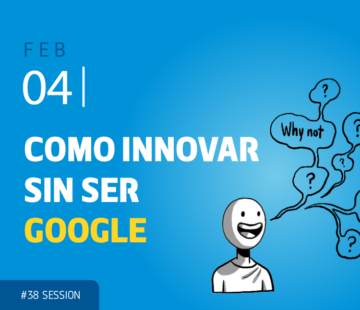Co-Session #31 (II): Sharing experiences in new ways of working

As described in our last post, we dedicated Co-Session #31 to finding out more about how technological and social transformation is changing the ways of workings in companies and organizations. Among the different shared experiences from people putting into practice these innovative ways we included Agile applied to R&D and the personal experiences of a freelance scientist and an entrepreneur in the tech area. We also held a workshop among the participants to determine to what extent changes in ways of working will affect their companies and sectors.
Applying agile in R&D
“Agile”, the set of methodologies used to develop collaborative projects, was created and has been mainly developed in the software programming field. The main feature of this way of working is based on breaking down each project into small chunks that have to be completed and delivered quickly and continuously. The aim is to achieve the flexibility and timeliness demanded by today’s customers and markets.
The Agile philosophy is permeating this way of working in other areas. Enric Senabre, IN3 researcher at the Open University of Catalonia, has been a pioneer in applying the idea of collaborative work in the R&D field and putting it into practice. As a co-founder of the Goteo crowdfunding platform, his interest in Agile arose from observing the similarities between the ways in which programmers work, in addition to many current online collaborative projects, such as Wikipedia. Agile allows multidisciplinary teams to work together recurrently and with a high level of transparency, which offers many advantages. However, according to Enric, we have to overcome two main barriers to apply this way of working to research: distrust on the part of many scientists when sharing information, and their reluctance with regard to the use of new digital tools for collaborative work. His recipe for overcoming these barriers is scientific evidence on how this type of collaboration makes research tasks more efficient.
The life of a science freelancer
Enrique Hernández is a young freelancer and entrepreneur in the field of scientific research. His experience is that of many other scientists who, like him, ran out of employment options after the last financial crisis and the subsequent cuts in the public budget set aside for research. So Enrique had to retrain, considering new ways of working as a scientist. His presentation brought interesting insights to the day. For example, the limitations of a way of a scientist’s professional career that turns them into experts in a very specific area of specialization from which it is very difficult to move later. In Spain, most companies still do not value professional skills developed by doctors beyond the specific knowledge that they may have built up in their specialty.
The lack of possible job opportunities urged Enrique to start a master’s degree that allowed him to add wider knowledge to his scientific know-how: knowledge of health matters, business management, legislative regulation, markets and technologies. This broader profile allows Enrique to work differently as a scientist today, carrying out his own research project while helping identify the clinical or market needs of other projects currently required by the European Union for funding.
Take the pulse of your organization
The anonymous employee feedback platform Happyforce is the fifth technological company that Alex Ríos has been involved in. That means having a long experience managing people and their work in very different, non-traditional ways. It is not just a matter of values, but also pure necessity to be able to develop these companies. Alex has needed primarily technological profiles that are in great demand within the market. The competition for this type of employee forces companies to offer working conditions that go further than just the salary. For Alex, the key lies in understanding what really motivates people. Experience shows that material rewards only motivate people to seek more material rewards.
The old model of “work hard today to enjoy tomorrow” is past its sell-by-date. These days, you can no longer work efficiently while waiting desperately for Friday afternoon or your next vacations to arrive. Companies and people have to look for a model that allows them to learn, contribute and enjoy themselves at all times and throughout their lives. Happyforce tries to apply this model by promoting internal motivations like autonomy, or in other words, people’s desire to self-direct and take their own decisions. This might include their working hours, business expenses or even salary. Having a sense of purpose is also of increasing importance, with the feeling that what we are doing is of use for something or someone more than for just ourselves.
“What’s in it for me” debate
As we have done on previous occasions, we held a workshop among the participants to determine to what extent changes in ways of working will affect their companies and sectors. Conversations revolved around three main questions: How can these new ways of working help us? What will they force us to do? What do we need to make them become a reality in our organizations?
Many of the responses coincided on issues such as the difficulty of transforming organizations beyond having tools available that make it possible. The main barrier seems to be in the distance between “what is on the way” and the organizational culture of most companies. The idea of dealing with these changes whilst understanding the company as a person took root, as did the need for organizations to “create the tribe”, taking the first steps for a group of people who feel and share the need to explore new ways of relating to each other to experiment with innovative and different ways of working. In fact, at the end of the Co-Session, a WhatsApp group called the “TRIBU”, or “tribe”, was created by the participants of one of the round tables. Several attendees admitted that they were taking home a list of ideas to start applying in their organization the very next day.
